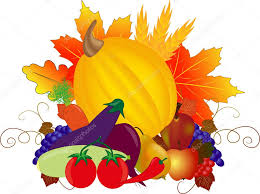
When my daughter began working, she had to settle for a seasonal job at a large retailer. She texted me her very first schedule. On Black Friday she had to be at her minimum wage job (which was a 1 ½ hr., two bus rides away) – 4am until 4pm. Saturday, she had to be at the store at 6am. The next day she had to work to1am (which was extended to 3am). Did I mention that the bus line didn’t run that late or early so guess who got to drive her to the mall and wait for her to finish those early hours?
Don’t get me wrong. We were all for Hannah developing a strong work ethic. We were glad she wanted to work and has continued to work steadily in her chosen field. It was just another sign that what used to be Thanksgiving weekend, spent with family, has nearly vanished.
It wasn’t too long ago that Thanksgiving and the following weekend, was down time. Watching the Macy’s parade with the smell of Turkey and fixings wafting through the house. There was mandatory time spent in a post-turkey coma snoozing. Then eating more turkey. In my home in Cleveland, Ohio, binge watching football, snowball fights, all the while catching up with family and friends. Eventually we got around to the dishes. It was a time to experience simple gratitude and give thanks.
Giving thanks is the hallmark of our spiritual life. Giving thanks doesn’t develop in us overnight. How many times do we have to remind our children to say, “please,” “thank you” or remind them to help out? The instincts to do good are there, but they must be encouraged, trained, even as we learn the piano, to cook, to garden, to learn a trade or profession by repetition and over time. We put in hours, over months and years, to learn something well. Is not the spiritual life, rooted in gratitude and grace, worth as much?
We are in a time of profound shifts in the church. We don’t know where we’ll end up or what new alternatives we’ll reach. One thing is sure: renewal by the Holy Spirit can only be achieved through the experience of love and the expression of gratitude and generosity. Renewal in forged as we deepen our personal connection to Jesus and make the habit of giving thanks to God our focus. We will find our way to renewal as we carve out the time to care and to enjoy each other’s company. We know this because our souls are created for love, giving and gratitude. We are healed, our church is healed and reborn in the acts of love sowing bountifully.
Our Scriptures bring us clarification. Paul’s second letter to Corinth is basically a benefit drive to help the poor in Jerusalem. For Paul, it was important for Gentile Christians, for Christians outside of Judea, to help Jewish Christians in the mother church. Paul wrote appeals at least three other times to the Corinthians and to other churches he established Thessalonica, Philippi and Galatia – on behalf of the poor Christians in Jerusalem.
While we don’t know the specifics of the struggles of the believers in Jerusalem ---although we know there was political and spiritual instability as well as a general economic depression. Some say Christian Jews were being ostracized from already scarce jobs. They were suffering for the faith. As a result, Paul made a big deal about giving. Giving, Paul reminds the Corinthians, not only glorifies God, it proclaims the gospel and brings good news.
Paul describes a spiritual cause-and-effect principal: we reap what we sow. If we give to help others in need we are blessed – blessed in many ways. Sometimes we are also financially or materially blessed. Sometimes our blessings are profoundly spiritual – we gain peace, joy and a sense of connection and belonging through giving.
Then there is the flip side of giving that we see in the gospel lesson of Jesus’ healing of the ten lepers. Jesus is in the region between Jewish and Gentile and heretics. Normally there’s not much generosity and giving going on there. Yet in illness the ten lepers of mixed backgrounds, united in their misery, approach Jesus and cry out to him for mercy. Jesus heal without judging the background of the needy who come to him. It is a generosity of heart Jesus wants us to have, that we too will give without regard to race, creed, nationality or any other of the differences that define us or divide us.
Jesus sends the lepers on their way to be declared ritually clean by the priest, as is proper according to scriptural law.
In the aftermath of Jesus’ kindness, only one cured leper comes back and thanks Jesus. This leper doesn’t go to the priest. This leper returns as soon as he realizes he is healed. Saying thank you was more important than getting his social pass. Only one leper turns around, praises God publicly, throws himself at Jesus’ feet, and said Thank you Jesus. One person – a Samaritan – the so-called heretic. This one person said Thank you. We too learn to say thank you from our places of brokenness, in the context of adversity, or because of the adversity. Like the Samaritan leper we find healing in our relationship to Jesus.
What do we learn from the Leper, from Paul, as a church at a pivotal, transitional point in its life cycle? A healthy church needs grateful people. A generous people. A people who know their need of healing, and through healing, praising and giving thanks to Jesus for his indiscriminate unconditional love. It needs people like my Hannah, willing to sacrifice, willing to put in the ungodly hours, willing to pay the dues to succeed. This Church needs you. It needs us to bountifully sow our investment of time, money and talent to thrive.
We Thank God for the privilege of giving; we thank God for the gift of faith we have received in Jesus. We thank God for healing, for receiving in our need and giving in our abundance. We give because we believe in giving. It makes us better people.
Bottom line is that we need to take back Thanksgiving Day. Not gorging ourselves into oblivion on food and football, then the mall at midnight. Let’s take back Thanksgiving the way today’s scriptures show us. Giving generously to our brothers and sisters in need. Identifying and receiving the healing from Jesus, responding on our kneels, a heartfelt Thank You Jesus. For if we have the opportunity to say please or thank you, to give help, well then we are deeply blessed.
Today we also celebrate Christ the King, the last day of the church year, to remind us that Jesus as King overall, not money not consumerism, not politics. Christ the King says don’t give up on family time – whether your family is your church, a pet, nature, or a three-generations from all around the world, or the human family. Christ the King says welcome Advent next week, as we prepare our hearts to be cradles for the Christ Child. So, this thanksgiving, this Advent season, instead of giving in mindlessly to consumerism, let us give thoughtfully, prayerfully to bring healing and joy to others and our church. Give yourself wholeheartedly to the mission and future of our Church. Let us give ourselves the opportunity to know Jesus, to the one who can make us whole -make ourselves bountiful sower of blessing, full of promise, capable of making a difference. And for this, let us give thanks. Amen.


 RSS Feed
RSS Feed